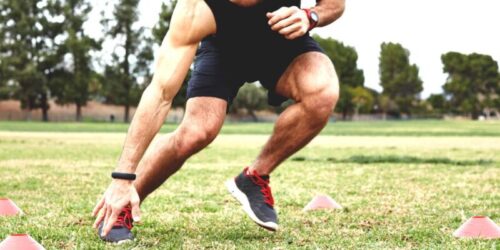How to Work Out for Rugby Union

How to Work Out for Rugby Union
It’s no secret that rugby union is one of the most physically demanding sports in the world. Not only does it require great agility, you also need to be alert and be a strong and powerful presence on the field to stand up to what can be punishing conditions.
This also applies whether you’re a pro or playing at an amateur level and the best way to foster top performance is to do the right workouts to strengthen you up and boost your fitness for the game. Alongside this there’s also your diet to consider, so below we’ve broken down what you need to do for a proper rugby union workout.
Strength Training
All the major muscle groups need to be built up and worked out for rugby union. As such, some of the most common exercises for this are squats, pushing and pulling sets and twists, each with incrementally increasing weights. According to sports site RugbyDump, it’s also recommended that rugby union players increase the weight, number and intensity of these types of exercises over a three-to-six-week period if you’re a pro, or anywhere up to six months and over if you’re a novice.
Cardio
You also need to be able to maintain your energy levels and according to Compare the Health, lots of cardio can better-equip your body to be more hardwearing and ultimately reduce your risk of injury. Popular aerobic exercises for rugby union players includes rowing, sprint bursts and burpees.
Flexibility
Stretching is another key part of a rugby workout. Again, it helps keep your muscles healthier and stronger and can be good for making you quicker on your feet. Three popular stretches for the sport are shoulder stretches, roll-over back stretches and hip and quad stretches.
Diet
With all this exercise comes the need for a high calorie diet that’s heavy on proteins, fats and carbs. This balance can also be essential for helping you increase muscle mass and for having the energy to do these workouts. You can find a full example diet from Webber Nutrition that specifically explains how, what and when you should be eating during the
Naturally the intensity of these exercises will depend on the level at which you’re playing rugby union, so be mindful of this factor. In other words, a professional player will be running such drills on a daily basis and will be having a more measured diet, but if you’re playing at an amateur level you won’t need to carry out such a thorough training programme.
As ever, you can speak with a medical or sports training professional to get the right setup for your playing abilities, age and preferences.





